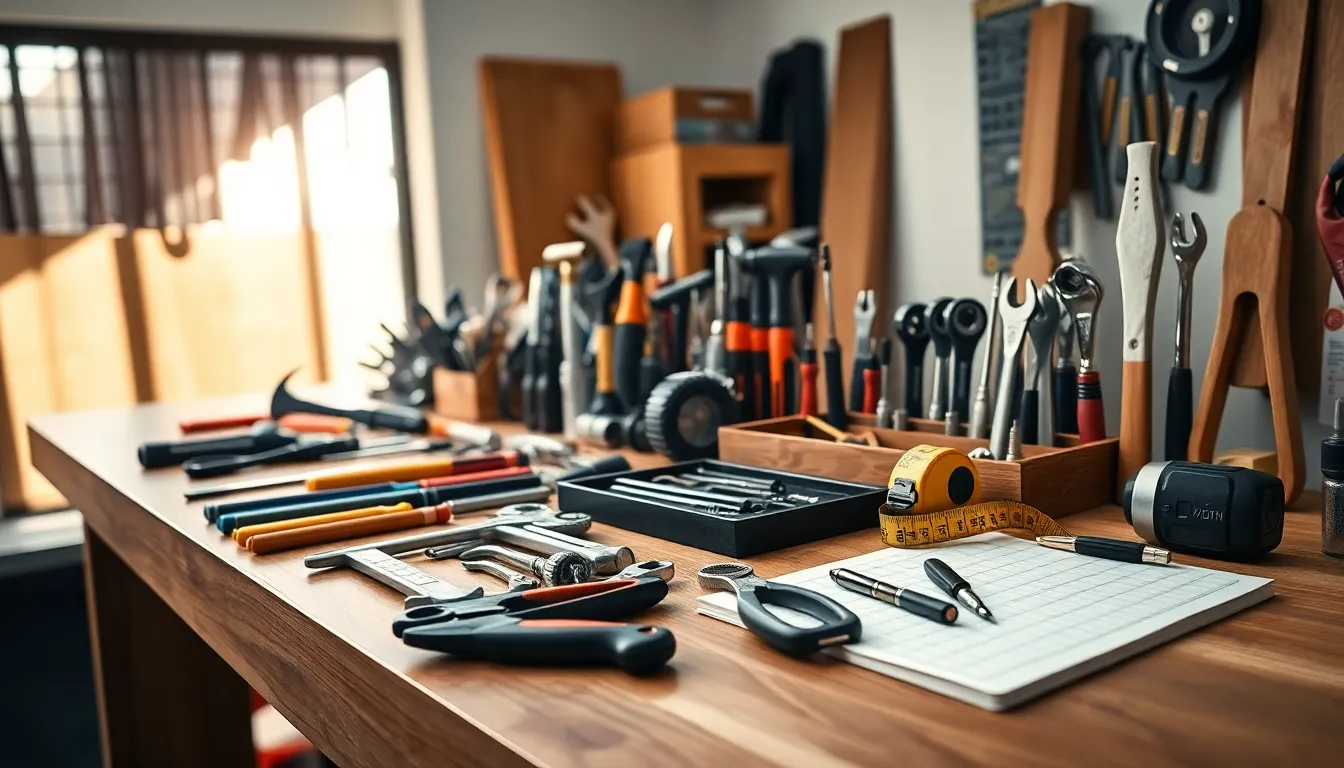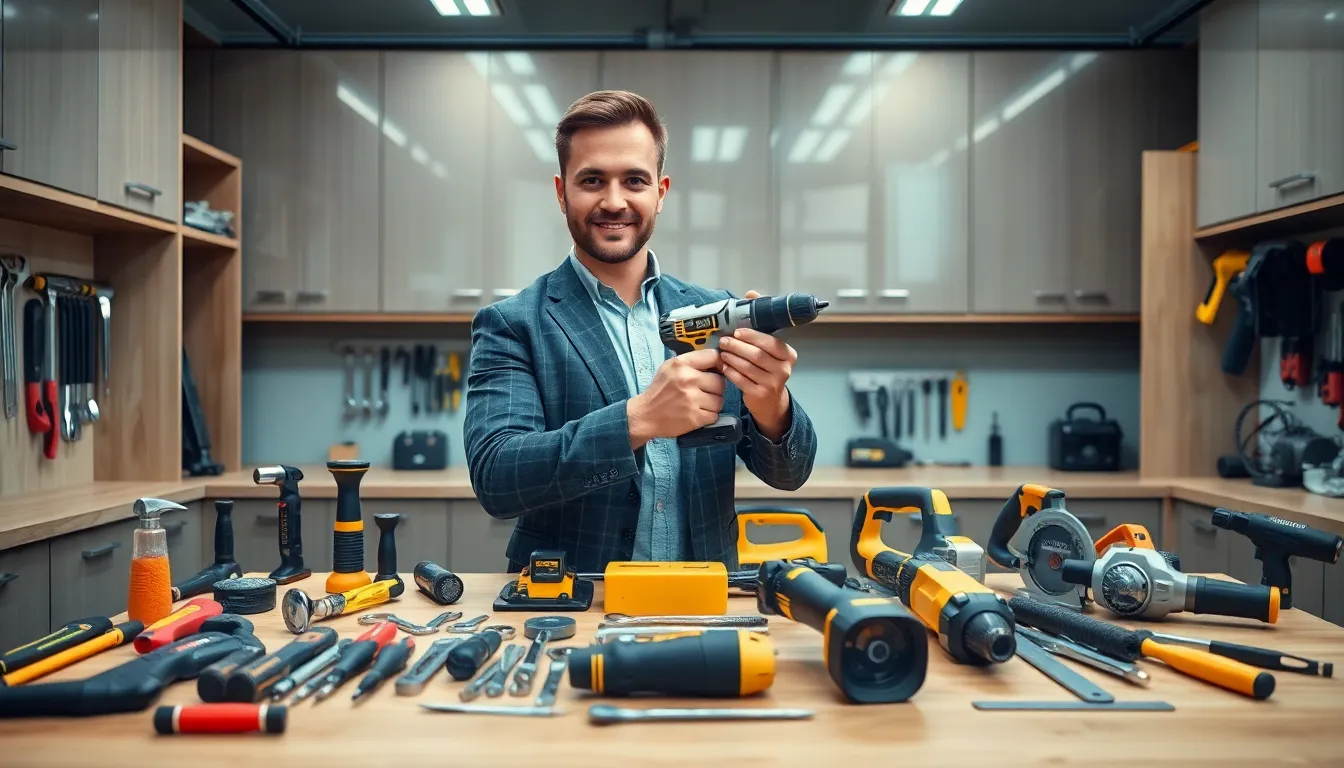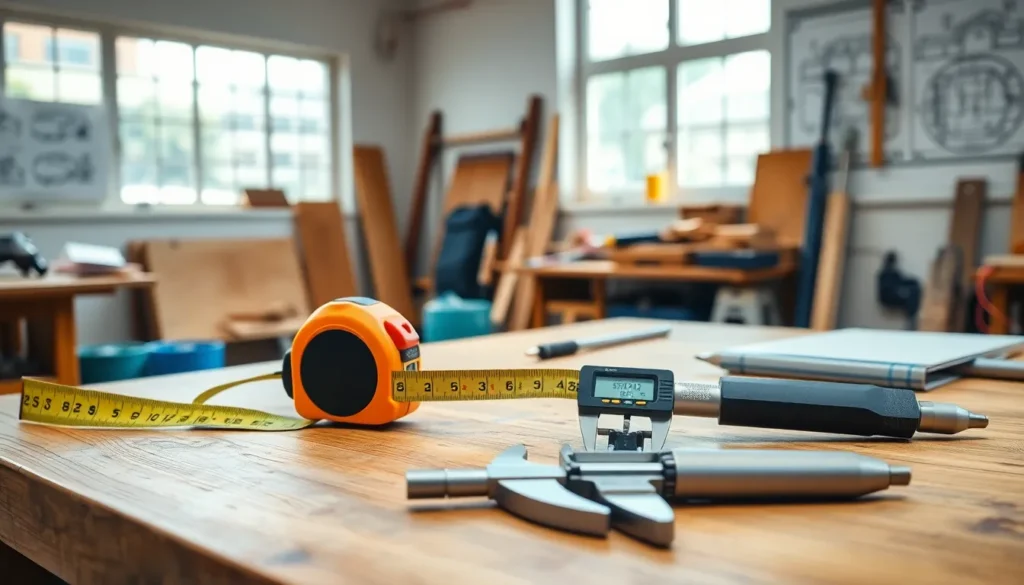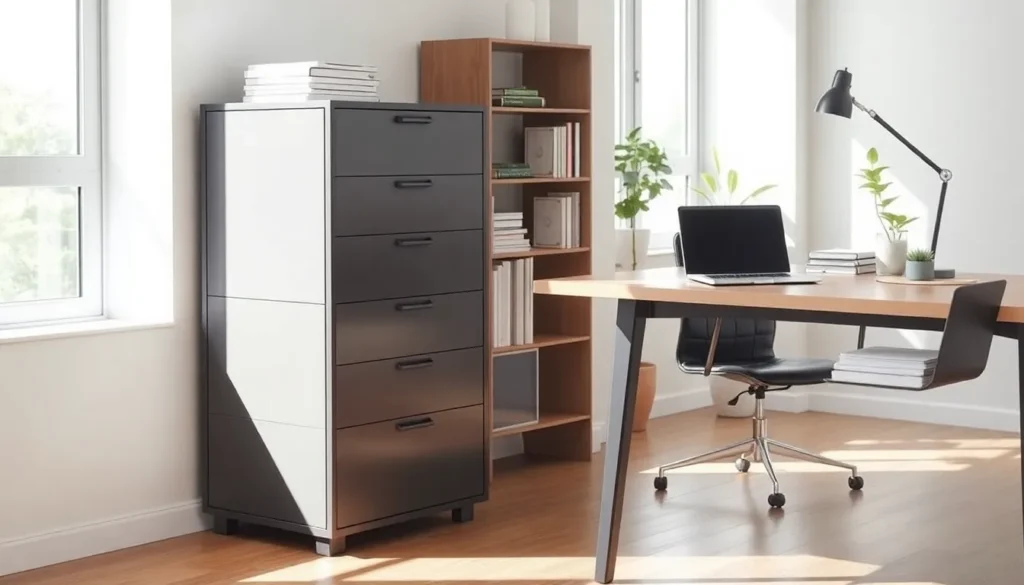Workshop tools and equipment are the backbone of any successful DIY project or professional try. Whether you’re a seasoned carpenter or just dabbling in a weekend hobby, having the right tools is crucial. Picture this: it’s 9 AM on a Saturday, and you’re ready to turn that Pinterest dream into reality. But wait. You’re armed with only a rusty hammer and not much else. Talk about a recipe for disaster. Fear not: we’ll dive deep into the essentials of workshop tools, from hand tools to power tools, and ensure you’re well-equipped to tackle any project with flair and safety.
Table of Contents
ToggleEssential Hand Tools

When it comes to toolboxes, hand tools form the foundation of any workshop. Think of them as trusty sidekicks, always ready to lend a hand (pun intended). Here’s a closer look at some of the must-have hand tools:
Hammers
Every workshop needs a hammer, but not all hammers are created equal. From claw hammers for driving nails to sledgehammers for demolition work, each serves a unique purpose. Choosing the right hammer can make your tasks quicker and more efficient.
Screwdrivers
A good set of screwdrivers should include various types, flathead, Phillips, and even Torx. Each type of screw demands a particular driver. Investing in a quality screwdriver set can save tons of frustration down the road.
Wrenches
Wrenches, including both adjustable and socket varieties, are indispensable. They come handy when tightening bolts or loosening stubborn screws. Consider keeping a few metric and standard sizes on hand to cover all your bases.
Pliers
Pliers are indispensable tools that serve multiple functions, from gripping and twisting to cutting wires. Keeping a diverse range of pliers, such as needle-nose and slip-joint, ensures you’re prepared for any job that comes your way.
Measuring and Marking Tools
Accurate measurements are key to any project. Invest in tape measures, squares, and levels to achieve perfect alignments. Don’t forget marking tools like pencils and chalk lines to keep everything straight.
These essential hand tools form the backbone of any efficient workshop. Mastering the use of each can elevate your craftsmanship significantly.
Power Tools Overview
While hand tools offer precision, power tools deliver speed and efficiency. If hand tools are the everyday heroes, power tools are the superheroes of the workshop. Here’s an overview of the staple power tools everyone should have:
Drills
Cordless drills have revolutionized woodworking projects. They’re lightweight and offer portability without sacrificing power. With interchangeable bits, you can drill holes or drive screws with ease.
Saws
From circular saws to jigsaws and miter saws, each type serves its own purpose. Circular saws excel at making long, straight cuts, while jigsaws shine in curve cutting. Investing in a decent router can also enhance your woodworking projects by allowing you to shape edges effortlessly.
Sanders
For a polished final touch, sanders are invaluable. They save time and provide a smooth finish, making them perfect for preparing surfaces for paint or stain.
Grinders
Angle grinders are versatile tools that can cut, grind, or polish various materials. Whether you’re working on metal or masonry, having an angle grinder on hand can help complex projects.
Safety Features of Power Tools
Many modern power tools come with built-in safety features such as blade guards and automatic shutoff mechanisms. Familiarizing oneself with these features can help prevent injuries and keep the workshop safe.
Exploring the world of power tools opens the door to countless possibilities for projects, just remember to use them responsibly.
Safety Equipment And Gear
Safety should never take a backseat in the workshop. With the combination of sharp tools and flying debris, it’s essential to have a robust safety strategy in place. Here’s a rundown on essential safety gear:
Eye Protection
Safety goggles are a must-have. They protect your eyes from dust, wood chips, and chemical splashes. Ensure they fit snugly for maximum protection.
Hearing Protection
Power tools can be deafening. Investing in ear protection is essential for long-term hearing health. Look for noise-canceling headphones or earplugs designed for workshop environments.
Respirators and Masks
Whether you’re sanding, painting, or working with chemicals, proper respiratory gear can prevent inhaling harmful allergens. Always choose respirators that fit well and offer adequate filtration.
Gloves
High-quality gloves protect hands from cuts, punctures, and chemical exposure. Depending on the task, you might need cut-resistant gloves or thicker leather options.
Steel-Toed Boots
A pair of steel-toed boots can save your toes from heavy tools or equipment accidents. Prioritize comfort and grip to prevent slips and falls.
Being proactive about safety gear not only protects you but also enhances your confidence while working. Remember, a safe workspace is a productive workspace.
Workshop Organization Tips
Keeping a workshop organized can significantly boost productivity. Here are some effective tips to help maintain an efficient workspace:
Tool Storage
Consider investing in a tool chest or wall-mounted pegboards. This keeps tools easily accessible and reduces clutter. Categorizing your tools can also speed up your workflow.
Workbench Essentials
Keep essential items like your drill, clamps, and screws within arm’s reach. This minimizes the time spent searching for tools as you work.
Clean-Up Routine
Make it a habit to tidy up at the end of each session. Establishing a routine not only keeps the workspace inviting but also prevents accidents caused by misplaced tools.
Labeling
Labeling storage bins and containers can prevent chaos. Knowing precisely where everything belongs saves time during projects and assists others who use the workshop.
Digital Inventory
Consider keeping an inventory of your tools and supplies. This can ensure you always have the materials needed and enables easier tracking of loaned items.
An organized workshop fosters creativity and efficiency, helping to turn ideas into reality seamlessly.
Maintaining Your Tools
Tools are an investment, and like any investment, they require maintenance to ensure longevity. Here’s how to keep your tools in tip-top shape:
Cleaning
Regular cleaning can extend the life of tools. Use a soft cloth to wipe down surfaces, and for stubborn grime, a bit of mild soap works wonders. Remember to unplug power tools before cleaning them.
Sharpening
Keeping cutting tools sharp is crucial. Dull blades require more effort and can lead to mistakes or injury. Invest in good sharpening tools to maintain edges.
Lubrication
For moving parts, periodic lubrication is a must. Use appropriate oils to prevent rust and ensure smooth functioning.
Storage Care
Store tools in a dry environment. Humidity can cause rust buildup. Consider using silica gel packs or rust-inhibiting agents for added protection.
Regular Inspection
Keep an eye out for wear and tear. Regularly inspecting tools helps catch problems early, preventing costly repairs or replacements down the line.
Taking care of your tools shows you respect your craft and want to keep them working hard for many years.
Choosing The Right Equipment For Your Workshop
Selecting the right equipment is a significant step in establishing your workshop. The ideal tools depend on your specific needs, capabilities, and types of projects you plan to undertake. Here are some pointers to consider:
Assessing Your Needs
Before acquiring any tool or equipment, reflect on the types of projects you’re interested in. Are you focused more on woodworking, metalworking, or automotive repair? Each discipline generally requires specialized tools.
Quality Over Quantity
While it might be tempting to buy cheaper options, investing in high-quality, durable tools pays off in the long run. They provide better performance and longevity, making them worth it.
Start Small
If you’re new to workshop projects, start with essential tools before expanding. This allows you to better understand what you frequently use, making future purchases more informed.
Space Considerations
Every workshop has its limitations on space. Choose tools that fit comfortably to prevent clutter and ensure ease of movement. Compact options may be beneficial in smaller workshops.
Recommendations and Reviews
Don’t hesitate to seek advice from fellow DIY enthusiasts or professionals. Research reviews and recommendations to make informed choices. Customer feedback can offer insights into durability and usability.
Choosing the right equipment, tailored to your unique projects, enhances both efficiency and creativity in your workshop.










